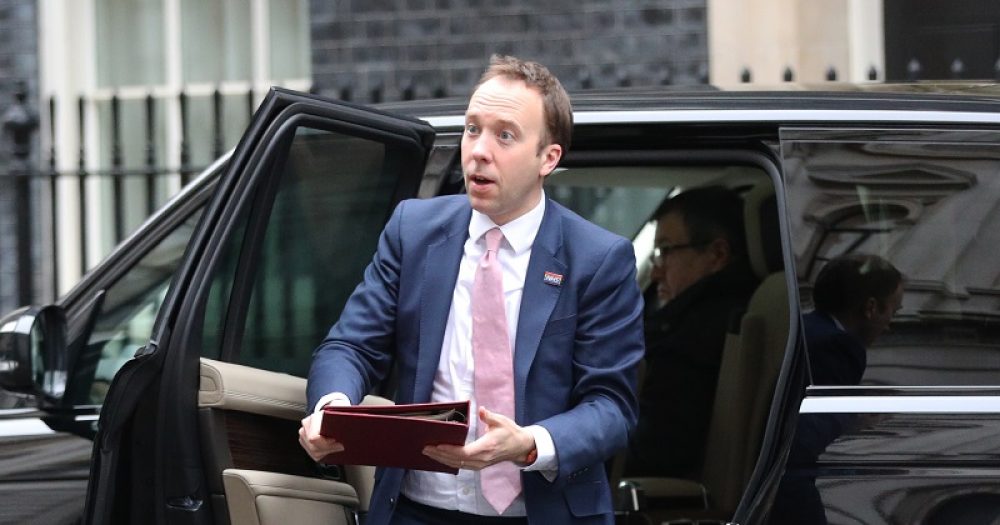Teachers and pupils across England will receive new coronavirus testing to “assess and monitor” the spread of the disease in school settings, the government has revealed.
Up to 100 schools will be tested by the end of the summer term under the programme’s initial phase. Around 200 staff and pupils at each school will be tested, with results available “over the summer”.
Health secretary Matt Hancock said: “A critical pillar of our COVID-19 testing strategy is surveillance – testing samples of the population to gain a deeper understanding of the spread of COVID-19, especially in those who may not have symptoms.
“This study will help us better understand how common asymptomatic and mild cases of COVID-19 are so that we can support parents, pupils and teachers and support staff, and inform our ongoing response to this new virus.”
The Public Health England study will add to data on antibody and virus prevalence which is already being collected through other nationwide studies.
The Department for Health and Social Care is now working with the Department for Education to “identify suitable schools”. Those chosen will be approached to take part by the government.
Participation from schools is on a voluntary basis – with parents and guardians providing consent before their child is tested. Of the 100 schools, 15 will be in London.
The schools who do take part will issue invitations to staff and pupils to participate in the study. Parents and carers will have the opportunity to “ask questions and will be encouraged to involve their children and explain how they can help by taking part”.
Around 40 per cent of the schools selected will also receive antibody tests by phlebotomists – medical professionals trained to collect blood samples.
This antibody test will determine whether someone has had the virus and developed antibodies.
The guidance states: “We want to ensure that pupils and staff receive the best possible care and treatment from clinical staff collecting swab and blood tests.”
Elsewhere the guidance reassures schools and parents the “testing procedures are completely safe”.
It explains: “to determine whether someone currently has the virus involves swab of the inside of their nose and the back of their throat, using a long cotton bud. Trained paediatric staff will take all blood samples from children. Trained medical professionals will visit schools to carry out the testing.
The government’s phased re-opening of schools started last week with the return of reception, year 1 and year 6 pupils to primary schools.
However, an NEU survey found more than four in 10 primary schools ignored government pleas to reopen more widely.
Furthermore national newspapers reported earlier today the government has ditched its ambition to see all pupils return to primary school before the summer.
Dr Shamez Ladhani, paediatric infectious diseases consultant at Public Health England, said: “The results of this study will play an important role in informing wider surveillance planned for educational settings in the autumn term.
“Through active surveillance, contact tracing and the close monitoring of any clusters of cases, we are committed to ensuring the safety of students and staff returning to school in the coming weeks and months.”
The government said that, in general, children have been shown to be asymptomatic. The study is part of UK-wide surveillance testing to “learn more about the spread of the disease and help inform the development of new tests and treatments”.
Education secretary Gavin Williamson added: “Studies like this will be invaluable as we continue moving forward with those plans, and help us assess the next steps for getting all children back into schools, nurseries and colleges with their friends and teachers.”








100 schools in England is around 0.4%. Too small a sample size to be reliable. Also regions vary in infection rates, so this makes your study even more unreliable. How will the schools will be chosen? How will you ensure to represent ethnicities, regions, type of school, ages of pupils in the right proportions? Stratified sampling with only 100 schools will most certainly miss out groups.
Waste of public funds just to appear like the government cares. Either do it properly or don’t bother at all. You are going to base policies on unreliable, fake findings which more n likely be conjured up to support your own agenda.
I totally agree! What’s the point indeed?
If the government wants schools to open safely there is no need for sample testing. They simply need to ensure all teachers are tested (initially) before they start working in schools. Not just the ones with symptoms. 70% of people are A-symptomatic. Why are we risking creating schools as hot spots for this virus. As children are less likely this should also follow. As a teacher who is recovering from pneumonia with an off-set of Asthma it worries me that if teachers are not tested I’ll be in a very vulnerable position.
A school I know is having these tests. They have only had the inside of the tip of the nose swabbed and not the throat and they did it themselves
Our school were supposed to be having these tests and we were told to ask our school nursing team to administer them. Problem is… they weren’t trained and because they were also seconded to work elsewhere, they said no! We went back to the government advisor with our problem and we never heard back. I don’t believe we were the only school with this issue… never mind.